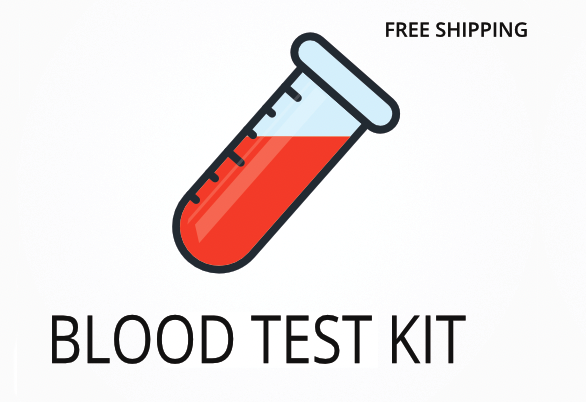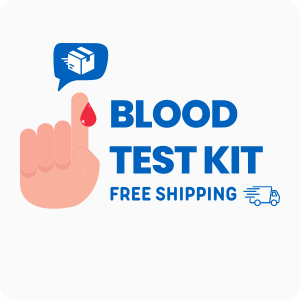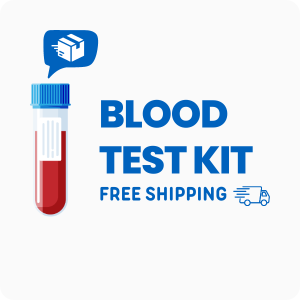Ordering the IgE Food Allergy Advanced Test (93) | Great Plains
This test helps identify specific food allergies by measuring IgE antibodies to 93 different foods, which can help pinpoint triggers for symptoms like rashes, digestive upset, or breathing issues. Interestingly, some people may have food allergies that do not cause immediate symptoms, making it harder to connect certain foods to ongoing problems.
Ordering this test can help you:
- Find out which foods are causing allergic reactions
- Reduce symptoms like hives, swelling, or stomach pain by avoiding certain foods
- Support your doctor in creating a targeted dietary plan
- Track changes in your immune response over time
- Identify hidden food allergies that may not cause obvious symptoms
People who have ongoing symptoms like skin rashes, stomach pain, or frequent sneezing after eating may benefit from this test. For example, someone who feels tired and bloated after meals but cannot figure out which food is causing the problem may find this test helpful.
Ordering may also be helpful if you:
- Have eczema that flares up after eating certain foods
- Experience headaches or sinus congestion after meals
- Notice coughing or a runny nose after eating
- Have a family history of food allergies or asthma
- Are curious if unexplained fatigue could be linked to hidden food allergies
Pinpointing food allergies can help you avoid foods that trigger symptoms, which may lead to fewer allergic reactions and less discomfort. Delaying this test could mean continued symptoms and more difficulty finding the foods that are causing problems.
Food Allergy and Sensitivity Screening for Dietary Triggers
This screening checks for immune reactions to a wide range of foods, helping you and your doctor make informed choices about what to eat. By identifying specific food triggers, you can make changes that may reduce symptoms like skin irritation, stomach upset, or breathing problems. Order now to take the next step toward finding answers.
Preparing for Food Allergy Blood Testing
Fasting is not required for this test, but always check the test kit instructions for any special steps before your blood draw. Make sure to follow whatever guidance your doctor or healthcare practitioner gives you, as this can help ensure your sample is collected and processed correctly.
Labs Included When Ordering Your IgE Food Allergy Advanced Test (93) | Great Plains
| Test Name | Reference Range | Significance | High Levels Mean |
|---|---|---|---|
| Dairy | |||
| Cow’s Milk IgE | <0.35 kU/L | Measures immune response to cow’s milk proteins. High levels may cause hives, stomach pain, or breathing issues after consuming dairy. | High levels of Cow’s Milk IgE suggest an allergy to cow’s milk and related products. |
| Egg | |||
| Egg White IgE | <0.35 kU/L | Detects allergic response to proteins in egg whites. Symptoms may include skin rash, swelling, or stomach upset. | High levels of Egg White IgE indicate an allergy to egg whites. |
| Egg Yolk IgE | <0.35 kU/L | Checks for immune reaction to egg yolk proteins. Allergic reactions may include digestive or skin symptoms. | High levels of Egg Yolk IgE mean an allergy to egg yolks is likely. |
| Fish & Shellfish | |||
| Codfish IgE | <0.35 kU/L | Assesses allergic response to codfish. Fish allergies can cause hives, swelling, or breathing problems. | High levels of Codfish IgE show a likely allergy to codfish. |
| Shrimp IgE | <0.35 kU/L | Measures immune response to shrimp proteins. Allergic reactions may include itching, swelling, or stomach upset. | High levels of Shrimp IgE suggest a shrimp allergy. |
| Grains | |||
| Wheat IgE | <0.35 kU/L | Detects allergic reaction to wheat proteins. Symptoms may include skin rash, stomach pain, or sneezing. | High levels of Wheat IgE indicate a wheat allergy. |
| Oat IgE | <0.35 kU/L | Checks for immune response to oat proteins. Allergic reactions may include digestive or skin symptoms. | High levels of Oat IgE mean an allergy to oats is likely. |
| Legumes | |||
| Peanut IgE | <0.35 kU/L | Measures allergic response to peanut proteins. Peanut allergies can cause swelling, hives, or stomach upset. | High levels of Peanut IgE suggest a peanut allergy. |
| Soybean IgE | <0.35 kU/L | Assesses immune reaction to soy proteins. Symptoms may include skin irritation or digestive problems. | High levels of Soybean IgE indicate a soy allergy. |
| Nuts & Seeds | |||
| Almond IgE | <0.35 kU/L | Detects allergic response to almond proteins. Allergic reactions may include swelling, rash, or stomach upset. | High levels of Almond IgE suggest an almond allergy. |
| Sesame Seed IgE | <0.35 kU/L | Measures immune response to sesame seed proteins. Symptoms may include skin rash or breathing problems. | High levels of Sesame Seed IgE indicate a sesame allergy. |
| Fruits | |||
| Apple IgE | <0.35 kU/L | Checks for allergic response to apple proteins. Symptoms may include mouth itching or swelling after eating apples. | High levels of Apple IgE suggest an apple allergy. |
| Banana IgE | <0.35 kU/L | Measures immune reaction to banana proteins. Allergic reactions may include itching, swelling, or stomach upset. | High levels of Banana IgE indicate a banana allergy. |
| Vegetables | |||
| Carrot IgE | <0.35 kU/L | Detects allergic response to carrot proteins. Symptoms may include mouth itching or skin rash. | High levels of Carrot IgE suggest a carrot allergy. |
| Celery IgE | <0.35 kU/L | Assesses immune reaction to celery proteins. Allergic reactions may include swelling, rash, or stomach upset. | High levels of Celery IgE indicate a celery allergy. |
| Meats | |||
| Beef IgE | <0.35 kU/L | Measures allergic response to beef proteins. Symptoms may include hives, swelling, or stomach pain. | High levels of Beef IgE suggest a beef allergy. |
| Chicken IgE | <0.35 kU/L | Detects immune reaction to chicken proteins. Allergic reactions may include skin rash or digestive upset. | High levels of Chicken IgE indicate a chicken allergy. |
| Other Foods | |||
| Sesame Seed IgE | <0.35 kU/L | Measures immune response to sesame seed proteins. Allergic reactions may include skin rash or breathing problems. | High levels of Sesame Seed IgE indicate a sesame allergy. |
| Mustard IgE | <0.35 kU/L | Detects allergic response to mustard proteins. Symptoms may include skin rash, swelling, or stomach upset. | High levels of Mustard IgE suggest a mustard allergy. |
| Full Analyte List | |||
| See the full analyte list here | |||
Reference ranges may change slightly as labs update their methods or improve their testing panels.
IgE Food Allergy Advanced Test FAQ
Is there IgE Food Allergy Advanced Test testing near me?
This test is a kit that can be collected at a local draw site; check the draw location link at the top of the page for options. For people with ongoing symptoms like rashes or stomach upset, having a nearby collection site makes it easier to get tested quickly and start finding answers.
How do I interpret the test results?
While your treating physician should review your results, you can also use our one-on-one test results review service with our clinical team for extra support.
What is the cost of the test?
The price shown includes standard shipping to you and return shipping to the lab, but draw fees may apply. Ordering this test can help you find out which foods are causing your symptoms so you can start feeling better sooner.
How often should I retest?
Retesting is usually recommended every 12-24 months, especially if your symptoms change or you start a new diet. Repeating the test can help track changes in your immune response and guide your food choices.
How accurate is the test?
This test uses enzyme-linked immunosorbent assay (ELISA) to measure IgE antibodies, with a specificity of 98% and sensitivity of 95%. TrueHealthLabs.com partners with CLIA-certified and CAP-certified laboratories to uphold rigorous testing standards for dependable results.
Important Notes
- This test can not be collected or mailed from New York State. Contact us with questions.
Medical Review Board
Reviewed by Jeff Donohue M.D. from Body Logic and Brady Hurst DC, CCCN. Written by True Health Lab’s team of editorial health contributors.
Disclaimer: This information is for educational purposes only and not intended as medical advice. Consult your healthcare provider for personalized guidance.
Why Customers Trust True Health Labs - What People are saying
Also rated 4.6 out of 5 based on 3452 ShopperApproved reviews- See all TrueHealthLabs.com reviews.








